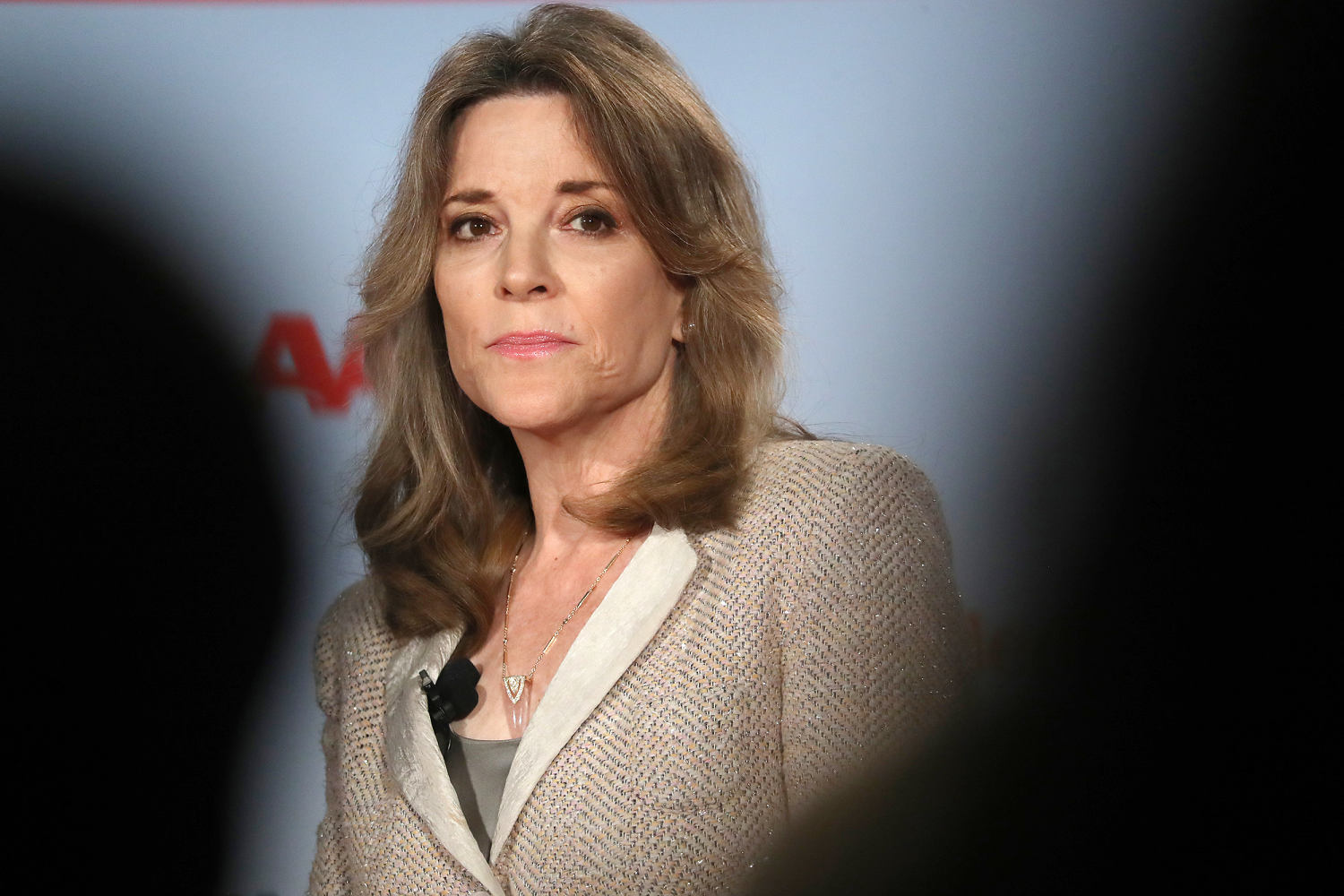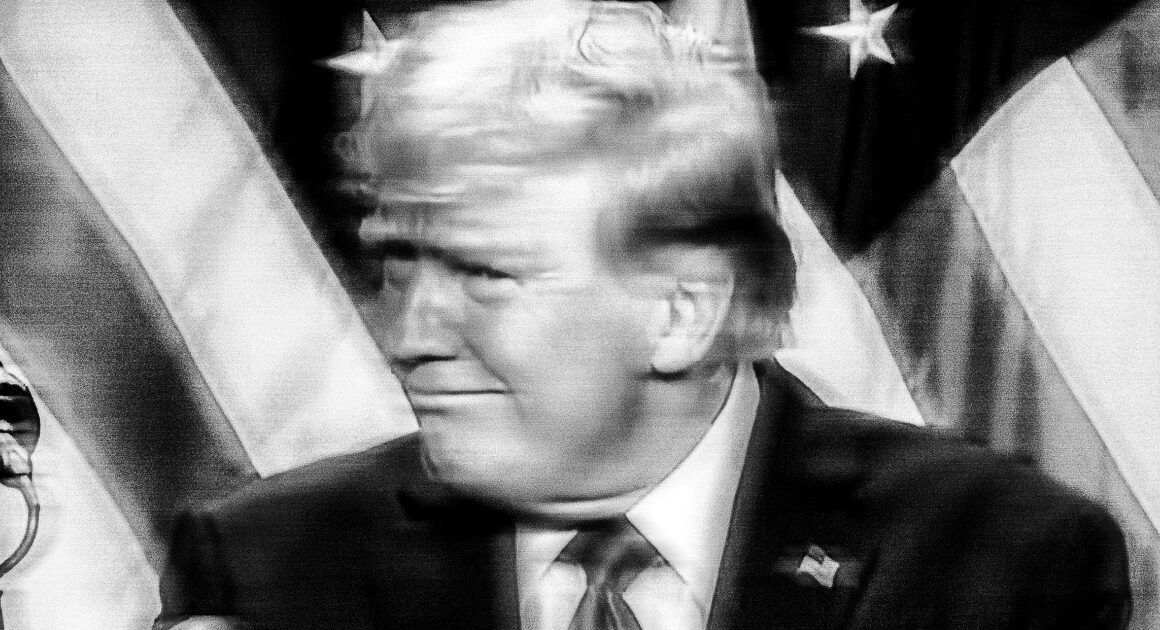
Democratic presidential candidate Marianne Williamson suspended her White House campaign Wednesday. It isn’t terribly surprising that she dropped her bid after winning only 4% of the vote in the New Hampshire primary and 2% in the South Carolina primary. More surprising is that she barely got any votes despite backing so many policies desired by progressives who might be interested in a challenge to President Joe Biden.
In her support for “Medicare for All,” free college tuition, rapidly shifting to renewable energy and calling for reparations, Williamson said a lot of the right things for those of us who lean far to the left. Still, she failed to win the support of a substantial number of people who generally like the idea of a social democrat running for the White House, despite facing no other competition in that lane this year. Williamson was ignored by the mainstream press, rarely made waves in progressive and left-wing spaces, didn’t garner huge crowds at rallies and was mostly forgotten during the primaries.
Williamson was not a trustworthy or effective messenger of the progressive policies she embraced.
I’m not sad about Williamson suspending her campaign. I do wish Biden had some serious competition from the left, and I think it’s a tragedy that he faces no organized pressure, for example, to adopt Medicare for All. But Williamson was not a trustworthy or effective messenger of the progressive policies she embraced, either this time or in 2020. Her woo-woo calls for a spiritual revolution were a distraction from a proper working-class-focused political movement.
Williamson’s background as a New Age spiritual guru was always in tension with her progressive political views. She has no background in electoral politics; she’s a self-help author who writes books about topics like healing and love and developed a wide audience as a spiritual adviser to Oprah Winfrey. And she has long been an evangelist of the kind of anti-establishment health views and manifest-the-world-you-want spiritualism that grate against progressive norms — and have genuinely dangerous implications.
For example, Williamson has written that “sickness is an illusion and does not exist,” and that “cancer and AIDS and other physical illnesses are physical manifestations of a psychic scream.” She has recklessly maligned antidepressants. She has called vaccine mandates “Orwellian” and “draconian.” (She apologized for those comments, but she has also used vague language when asked to clarify her views on vaccines, which she has a history of criticizing.) Williamson has implied that people can steer hurricanes through “the power of mind.”
Williamson’s mystical belief in the capacity of the individual mind to will a new reality into existence underpinned her political rhetoric — in a way that undercut her interest in progressive policies. Williamson prefers keeping talk of policy vague, as her rhetoric focuses more on triggering a “moral and spiritual awakening.” During a Democratic debate in the 2020 election cycle, Williamson decried the “wonkiness” of the other candidates as they discussed how to solve the water contamination crisis in Flint, Michigan, trivializing the importance of policy in resolving urgent public health crises.
In a video last year announcing her second presidential run, Williamson made several good points about the need for sweeping changes to the economy. But her argument for why she was the right candidate to make those changes was simply that she had the “moral courage” to do so. And her assessments of her adversaries was similarly glib. During her 2020 run, she referred to Trump as a “dark psychic force of collectivized hatred.” And her proposed response for how she’d defeat him came down to … love:
Donald Trump is not going to be beaten just by insider politics talk. He’s not going to be beaten just by somebody who has plans. He’s going to be beaten by somebody who has an idea what the man has done. This man has reached into the psyche of the American people and he has harnessed fear for political purposes.
So, Mr. President — if you’re listening — I want you to hear me, please: You have harnessed fear for political purposes, and only love can cast that out. So I, sir, I have a feeling you know what you’re doing. I’m going to harness love for political purposes. I will meet you on that field, and sir, love will win.
That … falls well short of a convincing plan. Williamson’s reliance on spiritual epiphanies and confrontations for her theory of change suggested that she isn’t suited for the gritty everyday work of organizing citizens and mobilizing them. It raised questions of whether she was prepared to reckon with how the material side of politics works. And clearly few people ever believed that her rhetoric of love and spiritual conversion was sufficient to counteract the ascendant proto-fascism on the right.
Setting aside her questionable medical views, I appreciate Williamson’s aspirations toward putting progressive policies on the map. But the person advocating for those policies matters. So does the way they frame those policies and explain how they plan to make them a reality. She wasn’t the right person for that job.
![]()





